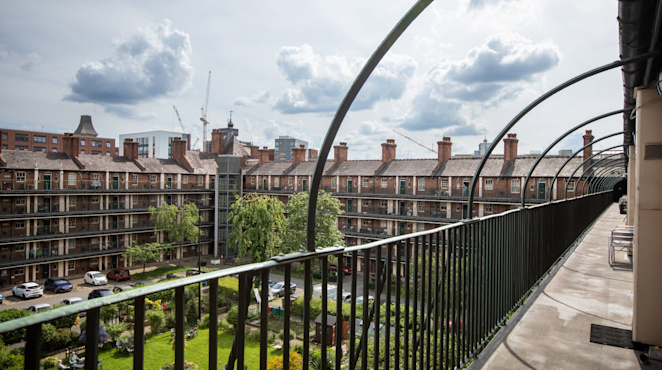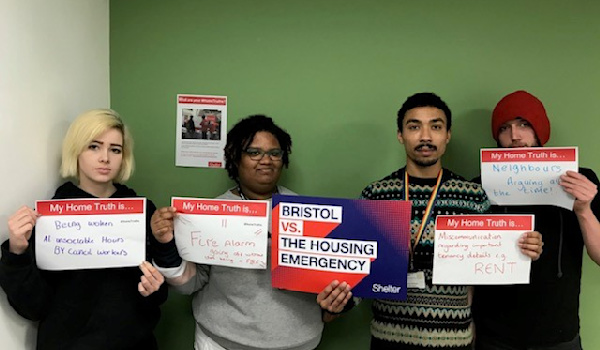Campaign with us
With your help, we campaign tirelessly to fight the devastating impact of the housing emergency. By working with communities to understand the real challenges people face every day, we campaign to change the broken housing system from the ground up.
Support us by writing to your MP, signing our petitions and open letters, or becoming a Housing Emergency Response Operative (HERO). Your voice is powerful.
Take action
A few minutes of your time today could make lasting changes to the law.

Help us campaign for a new generation of social housing
Have your say: what renting issue should we campaign on next?

Tell us what life for renters is really like beyond the headlines and statistics.
What we're fighting for
We believe that home is everything. Your campaigning forces those in power to sit up and take note, creating real policy changes that fight the housing emergency head-on.
Other ways to campaign
We're building an army of campaigners to join the fight for home. We've got big problems to tackle and we need campaigners to join the fight.

Join a local campaign

Be a housing campaigns HERO
Get in touch
Looking for campaigning resources? Have a question? We'd love to hear from you.
Email the team



